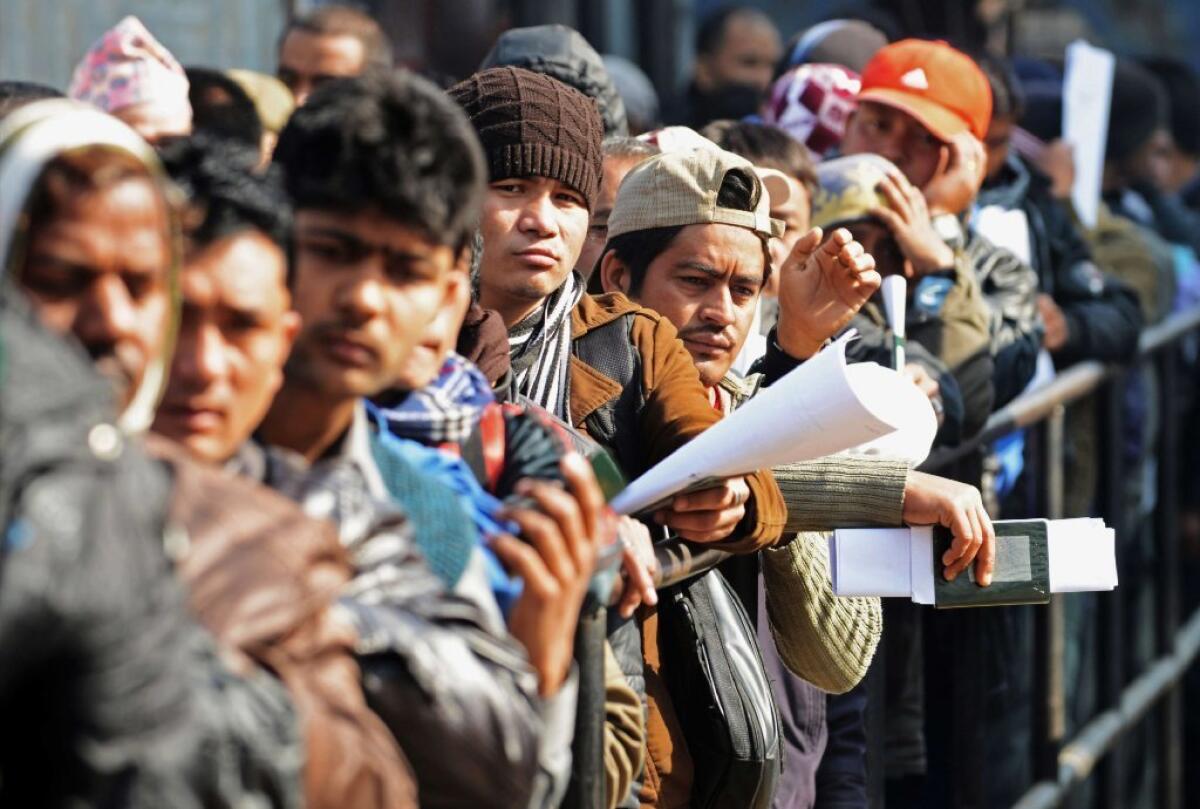Qatar’s World Cup preparations shouldn’t include abusing its workers

The Persian Gulf emirate of Qatar, flush with oil riches and seeking to push its way to the front of the international stage, is in the midst of an enormous, decade-long building boom to construct facilities and infrastructure for the 2022 World Cup soccer tournament, the largest and most-viewed sporting event in the world. Unfortunately, Qatar is preparing for that moment of international cooperation and sport by grievously exploiting its foreign workers, subjecting them to dangerous conditions that should be drawing forceful condemnations from the world community.
A report last week by the government of India, which supplies a large share of Qatar’s workers, suggests that more than 500 of its citizens have died there since 2012, primarily, according to the Guardian, in either on-site accidents or from working in inhumane conditions. Nepal, another big supplier of Qatar’s labor force, recorded the deaths of 383 Nepali workers in that country in 2012-13.
International observers and human rights groups have described working conditions for foreign laborers in Qatar as intolerable and inhumane, citing dangerous work sites, confiscations of passports by employers, withheld wages, oppressively overcrowded worker dormitories and limited access to food and water despite 12-hour work shifts often in triple-digit temperatures. Although conditions are difficult for foreign workers in many gulf countries, Amnesty International notes that Qatar is different because of its unusual exit permit system — under which foreign nationals can’t leave the country without permission from their employers — its ban on unions and the sheer size of its foreign labor force.
In November, at the end of an eight-day trip to Qatar, United Nations special rapporteur Francois Crepeau urged the government to adopt basic labor protections involving worker safety and minimum wages, and calling for reform of the nation’s sponsorship system for foreign workers, in which the importing employer holds all the power. Crepeau’s full report is due in June. The International Labor Organization also says Qatar’s policies fall far short of that group’s standards, which include workers’ right to organize, a set minimum wage and the freedom of workers to leave a job.
So why should the world care? Beyond the basic human rights issue, Qatar is hosting so many foreign workers in part to turn itself into an international tourist destination, and to prepare for the 2022 World Cup. Which means that Qatar’s foreign laborers are suffering to create venues for one of the world’s largest displays of international cooperation. FIFA, soccer’s world governing body, has joined others in criticizing Qatar, and the country recently extended limited worker safety protections at World Cup stadiums and training facilities that are under construction. But according to Amnesty International, the protections do not cover workers building roads, hotels, transportation facilities and other key infrastructure. And the new rules include no enforcement mechanism.
Qatar needs to do more, and FIFA and the nations involved in the World Cup — which is most of the globe, including the U.S. — should press the emirate to safeguard the lives and livelihoods of its immigrant workers. It’s bad enough to build wealth through the inhumane exploitation of laborers. It’s even worse to do it in the name of global cooperation.
More to Read
A cure for the common opinion
Get thought-provoking perspectives with our weekly newsletter.
You may occasionally receive promotional content from the Los Angeles Times.










